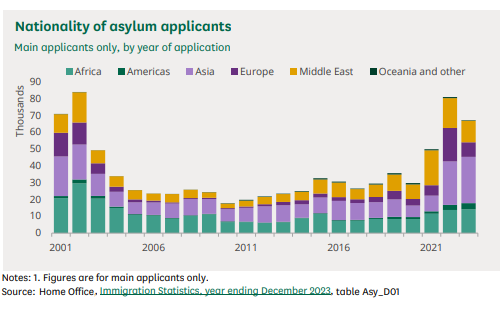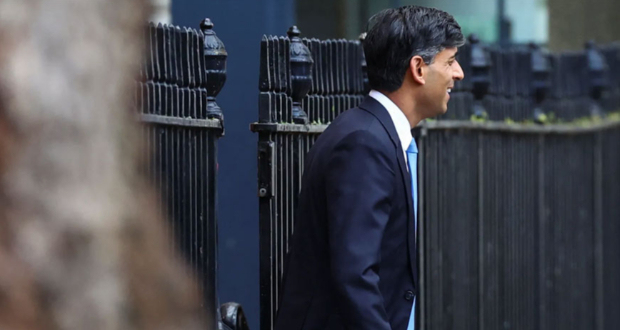When Prime Minister Rishi Sunak was elected in late 2022, he vowed to “stop the boats”. He was referring to the forced migrants who enter the United Kingdom (UK) using illegal, dangerous, and often unnecessary methods, primarily by boat. Consequently, on April 22, a law was passed by the British Parliament that permits any illegal asylum applicants to be deported to East African country Rwanda and, then be barred from ever entering the country again.
However, since there is no refugee visa or other legitimate means of entry, the rule essentially means that all asylum seekers are prohibited from entering the UK. The plan calls for sending anyone who entered the country illegally after 1 January 2022 to Rwanda. Thus, if this law gets implemented, it is likely that the 50,000 asylum seekers who are currently in the UK might eventually be deported to Rwanda. The top five countries seeking asylum in UK, arriving by boat are Afghanistan, Iran, Pakistan, India, and Bangladesh.

The genesis of the law goes back to April 2022 when Rwandan President Paul Kagame and Britain’s then Prime Minister Boris Johnson signed an agreement known as the ‘Migration and Economic Partnership’, or ‘Rwanda Plan’ that would allow Britain to deport anyone seeking asylum to Rwanda. As the number of refugees coming by boat to the UK in 2022 rose to a record 45,774 from a mere 299 in 2018, immigration has emerged as an increasingly highly-debated issue in the UK parliament.
Nonetheless, the European Court of Human Rights (ECHR) deemed the law as illegal and prevented the first deportation flight from taking place in June 2022. Furthermore, the British Supreme Court in November 2023 upheld its decision declaring the scheme illegal due to the possibility of persecution of these asylum-seekers in their home countries or other nations, such as Rwanda, if migrants were returned. This would violate both British and international human rights laws and accords.




